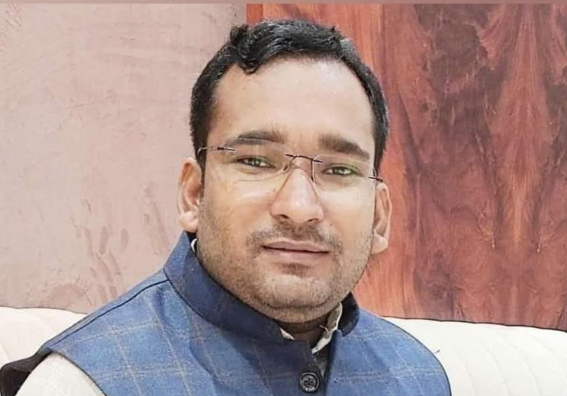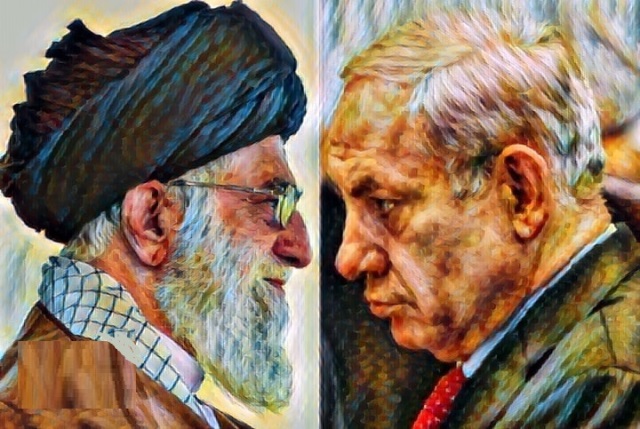Iran’s drone and missile retaliation for Israel bombing its Embassy in Lebanon has pushed Israel into a political maze with no clear exit in sight. That is the ingenious strategy of the Iranian Mullahs if they can pull it off. Israel’s position appears to be weakened. If it retaliates, many of its ‘friends’ or partners in the international community will be extremely unhappy; some will turn against it. Moreover, Iran will probably escalate it to a full war, which the world wants to avoid. If it does not retaliate, Israel will look weak and the regional challengers to it will become more confident.
Militarily, Israel is the superior of the two countries. Its arms technology is highly advanced and its famous Iron Dome defence systems have won the admiration of the most advanced military powers. It also has the added advantage of having a nuclear capability that may have been a powerful deterrence to any ambitious powers in the neighbourhood. It prides in a highly efficient army. Most importantly its second deterrence has been its willingness to strike back harder and mercilessly.
Israel has laid waste to Gaza and killed over 33,000 Palestinians in response to the October 7 attacks by Hamas. The ferocity has shocked not only the Palestinians but rest of the world too. Israel has a history of ‘taking out’ military commanders and scientists of its adversaries, particularly Iran, Hezbollah and Hamas. Under its current foreign policy and defence policies, it cannot simply sit back and let the Iranian attack unanswered. Its prestige, its deterrence factor and its own concept of security are at stake. It is caught between a reckless reaction or limited reaction to appease its own population.
How did it come to this? The Iranian leadership, it has to be said, is capable of extraordinary intrigue and strategy. In the second Iraq war, Iran was a major instigator behind the scenes to push the United States to attack Iraq and hence rid Iran of its arch enemy, the Saddam regime. Iran did not achieve that by any direct or indirect diplomacy with US.
Iran had nurtured four secret agents and put them close to the Saddam regime. These people probably didn’t know each other. Each of them then defected to different agencies of the USA. Each of them had a similar base story but a different ending. They told the FBI, CIA, and State Department that Saddam was indeed developing nuclear and chemical weapons. They even identified underground locations where this was allegedly happening. Each of them had a different ‘intelligence’ to give on the stage of the development of the weapons of mass destruction.
United States agencies were very competitive at that time and didn’t like to disclose their ‘source’ to the other agency. So each agency was pushing the narrative that they had absolute confirmation that Saddam was developing nuclear weapons but neither would disclose their ‘source’. The narrative appeared convincing as each defector gave incremental time span for final development of the nuclear bomb.
The US under Bush was looking for any excuse to attack Iraq after 9/11. Justifying it by the WMD story, it attacked Iraq and got rid of Saddam for Iran without realising what it was doing, until quite late when it tried to instal Chalabi as Vice President and discovered that he was in fact a suspected Iranian agent!
Now too, Iran has woven a spider’s web and choreographed the event and responses. It engaged in loudspeaker strategy of its intentions. It alerted Israel and all its partners about what it was about to do and what weapons it will use.
The first principle of any attack is meant to be the ‘surprise’ to catch the enemy asleep. Here Iran was declaring everything so that the ‘enemy’ and its partners had enough time to put up appropriate defence. And so they did. According to Israel, UK and USA, 99% of the drones and missiles were brought down before they reached their target. The coalition declared that Iran’s 301 drones and missiles had failed!
However, some missiles did reach targets despite the Iron Dome, advanced American and British counter drone-missile technology and an almost week’s warning to prepare.
ALSO READ: Terror Attack in Iran Augurs Bad Omen for W Asia
Iran, it seemed, was reckoning on all its drones and missiles being neutralised. It did not want any civilian casualties. And it was not really declaring war. It was a much announced megaphone warning to Israel and its partners that it will retaliate and that it has more advanced technology in wait if it comes to war.
That a few of the missiles hit targets has shown that if Iran were to mount 500 or more drones and missiles of the same calibre, it could hit a few targets with devastating damage. Secondly, it has also indicated that it has even more advanced technology to overcome the defensive systems of its ‘enemies’.
The most important outcome of the Iranian action is that it has politically incapacitated Israel and punctured its ‘invincibility’ factor in the Middle East. Again it has used its ‘enemy’ to supress its other ‘enemy’, Israel.
Iran has told USA that it will attack American targets if USA gets involved further. Its proxy, the Houthis, have already cornered British capabilities. The Americans know that Iran could damage many of its oil interests in the Middle East, which will send oil prices rocketing and the economy downhill.
Both USA and UK have leant on Israel to back off from further action. Israel is also fearful that it may not be able to rely on American and European support. It cannot be sure whether it can damage Iran without causing considerable damage to itself in destruction and human life. Israelis won’t forgive their government for this. Israel may triumph in the beginning, but in the long term it will be a shell of its current self.
The invincibility factor is disappearing. All that is left is a regime high on inflamed octane wanting to reassert its fierce factor in the region without knowing what to do. If Israel does something, it will backfire. If it doesn’t do anything, the Netanyahu regime’s bubble will be burst. The Nuclear deterrent won’t work for the simple reason that the whole world will turn against it. Iran may even pull in Russian or North Koreans nuclear arsenal in the conflict. A nuclear strike on Israel will decimate it considerably. America didn’t use a single nuclear weapon in any of the wars it was losing since Second World War.
Biden did try to explain to Netanyahu to learn from the American experience in Iraq and Afghanistan which significantly deflated American power and allowed its competitors to rise in the world of power. Netanyahu didn’t listen, but chose to bombard Gaza relentlessly.
Iran, it needs to be understood, is an ancient power with long history of strategic abilities. Just because regimes change, doesn’t mean wisdoms and experience are lost. The training of an Iranian Mullah is not just the Quran. They spend three years in the study of the Quran, a year in western philosophy, a year in other philosophies such as Hinduism, Confucian etc. A year studying basic science and international relations and a year in critical thinking. It’s a seven-year course to match any PhD in the world. They are not simple priests that one encounters in many developing world.
The future for the current Israel regime is uncertain. Perhaps the best way forward is for Israel to come to terms with its limitations, change its leadership and seek coexistence within Middle East rather than surviving on the‘fearful factor’. Through this very difficult crisis, it needs a change of direction, just as the USA did after humiliations in Iraq and Afghanistan. Ironically, Iran can be a key to its conflict with Hamas and the door to a peaceful future. Israel needs a leadership that can engage through diplomacy and chart a different future for it.
For more details visit us: https://lokmarg.com/

